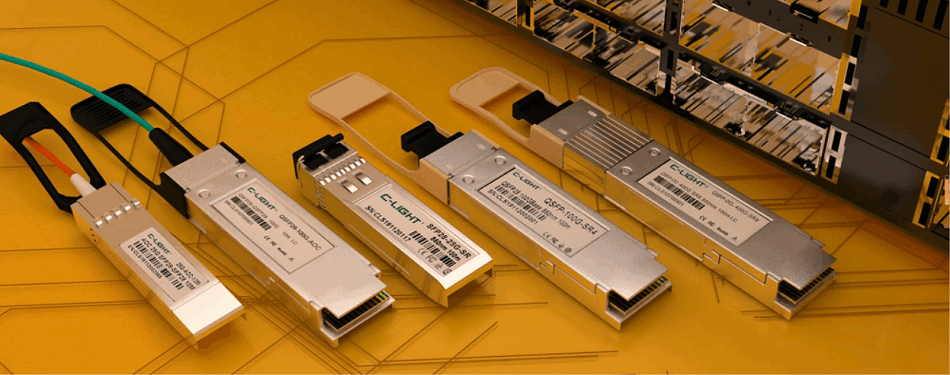



In this article, we will delve into the various components of the data center and reveal their functions and roles to help you better understand how the data center works.

1. Server
The server is the core component of the data center and takes on the important task of storing and processing data. In a data center, servers can be classified into application servers, database servers, and storage servers.
Application servers are responsible for running various applications, such as web services, mail services, file transfers, and so on. They usually use high-performance processors and large memory capacity to support high concurrency access requirements. The database server is used to store and manage a large amount of data to ensure data security and reliability. Storage servers are used to store massive data and provide high-speed data read and write capabilities.
In addition to the above common server types, the data center may also contain other purpose-specific servers, such as application acceleration servers, security servers, etc., to meet the requirements of different business needs.
2. Storage devices
Storage devices are another important component in the data center, used to store data and provide read and write access to the data. Common storage devices include hard disks, solid state drives (SSDS), tape libraries, and so on.
Hard disk is one of the most common storage devices in the data center, its relatively low price, large capacity, suitable for storing large amounts of unstructured data. Solid state drives (SSDS) have the characteristics of fast read and write speed and strong durability, which is suitable for storing data with high performance requirements. Tape libraries are a high-density, low-cost storage solution for long-term storage and backup of data.
A data center usually uses a variety of storage devices to meet different data storage requirements through a storage hierarchy. High-performance data storage devices are usually used to store hot data, while low-cost storage devices are used to store cold data to achieve a balance between cost and performance.
3. network equipment
Network equipment is another key component in the data center, responsible for data transmission and communication both inside and outside the data center. Common network devices include switches, routers, and firewalls.
A switch is the core network device in a data center. It is used to connect various servers and storage devices to achieve fast internal data transmission. The router is responsible for connecting the data center to the external network, enabling the import and export of data. Firewalls are used to protect data centers from network attacks and malicious intrusions.
C-light's 10~400G AOC and DAC are a cornerstone of modern data center infrastructure, perfectly tailored to meet the escalating demands for high-speed, low-latency connectivity. These cables offer a seamless and efficient solution for interconnecting high-performance computing and networking equipment within data centers, where speed and reliability are paramount. C-light's commitment to quality and innovation is evident in these cables, which are designed to support the rapid data transfer rates required by today's data-intensive applications. By ensuring high-density, high-capacity connectivity, C-light's 10~400G AOC and DAC solutions are instrumental in enabling data centers to operate at peak efficiency, supporting the continuous flow of data that drives digital transformation and business growth.
Network devices in a data center must have high performance, high reliability, and high security to ensure secure data transmission and fast response. In addition, as the size of the data center continues to expand, the flexibility and scalability of network equipment is becoming increasingly important.
4. power supply equipment
Power supply equipment is another important part of the data center, responsible for providing a stable power supply to ensure the normal operation of the data center. Common power supplies include UPS (uninterruptible power supply), generators, and so on.
5. cooling equipment
Cooling equipment is another key component in the data center, responsible for controlling the temperature of the data center to ensure the normal operation of the equipment. Servers and storage devices in a data center generate a lot of heat when they are running. If the heat dissipation is not timely, the devices may overheat, affecting the running performance or even damaging the devices.
6. Integrated management system
In addition to the above core components, the data center also needs to be equipped with an integrated management system for monitoring and managing the various operating parameters and equipment status of the data center. The integrated management system usually includes the equipment room environment monitoring system, equipment operation monitoring system, security management system, etc.
The equipment room environment monitoring system monitors environmental parameters such as temperature, humidity, and pressure of the data center, and detects security events such as fire and water leakage. The device running monitoring system monitors the running status and performance indicators of servers, storage devices, and network devices, and detects and handles device faults and exceptions in a timely manner. The security management system is used to protect the network security of the data center and prevent network attacks and malicious intrusions.
The integrated management system can help the data center realize intelligent operation and management, and improve the operation efficiency and security of the data center. At the same time, the integrated management system can also provide data analysis and prediction functions to help the data center predict equipment failures and performance degradation, and take timely measures to repair and optimize.
Conclusion
To sum up, data centers are complex systems made up of multiple key components, each of which plays an important role. From servers to storage devices, to networking equipment, power equipment and cooling equipment, each link is closely connected, and together constitute the infrastructure of the data center.